Newhouse Impact: Media Literacy’s Role in Social Justice and Empowerment; Newhouse Impact Summit
The latest Newhouse Impact research roundup also covers more about teenagers’ media use-and how it impacts gender expression, sexual choices and more.
Newhouse Impact Podcast
Many scholars have noted that education on media literacy is increasingly important as social and digital media become bigger parts of people’s lives.
On a recent episode of “Newhouse Impact,” Newhouse Communications Professor Dr. Srivi Ramasubramanian and Mass Communications Doctoral Student Shannon Burth expand the notion of media literacy beyond simply understanding the more about the media we consume. Their research also examines the ability to use media, to act and be empowered, and their importance as tools for social justice. They further include understanding the spread of AI and algorithms that increasingly control what is presented in various media.
Listen to the full show by visiting the WAER episode page.
Also listen to: How are media influencing teens and their sexual choices and behaviors?
Teenagers’ use of media – especially social media – is the topic of much debate. Research shows media use is having an impact on teens and their sexuality, things such as gender identity, expression, and their sexual choices.
On this episode, Dr. Rebecca Ortiz, advertising associate professor at the Newhouse School, shares her investigations into teenagers’ media use, in advance of a new book coming out. The work can help inform messages shared through media about teenagers’ health and sexual health.
2024 Newhouse Impact Summit
Scheduled for Aug. 1-2 at the Newhouse School, this year’s Newhouse Impact Summit is titled “Advances and Opportunities in Immersive Storytelling Technologies.” The conference will feature speakers from around the world presenting their innovative and provocative creative and scholarly work on the past, present and future of storytelling through extended reality technologies.
Check out the Newhouse Impact Summit Schedule
Recent accolades, highlights and notes
G. Douglas Barrett has been selected as an ASPI Fellow.
Bob Papper and Keren Anderson published reports on RTDNA on their research on radio staffing, local TV news staffing and TV news salaries.
Raiana de Carvalho, Martina Santia and Srivi Ramasubramanian authored a research paper titled “Framing the Yanomami: decolonial analysis of U.S coverage of Indigenous people in Brazil during COVID-19.”
Raiana de Carvalho authored a research paper titled “Remembering Marielle Franco: Haunting online presence and the memorialization of resistance on social media.”
Shannon Burth and Srivi Ramasubramanian authored a research paper called “Mapping media literacy impact in the U.S.: a review of literature and call for equity.”
Martina Santia and Jodi Upton authored a research paper titled “Promoting Coaches on Instagram: A Content Analysis of Posts Featuring NCAA Division I Coaches of Women’s Sports”
Josh Darr was quoted in an article discussing the first presidential debate of 2024.
The Newhouse Emerging Technologies Faculty Fellowship program recognized Newhouse School faculty seeking to incorporate emerging technologies into their curriculum.
Syracuse University’s Institute for Democracy, Journalism and Citizenship launched a new poll that measures attitudes toward civic engagement, democracy and news and information, as well as a searchable database and a new report that tracks “inauthentic influencers.”
IDJC’s ElectionGraph Launches Searchable Database, New Report Tracking ‘Inauthentic Influencers’
A new searchable database allows the public to examine groups running social media ads that mention U.S. presidential candidates, including secretly coordinated pages that are running identical videos or messages.
The work is the result of comprehensive research through the ElectionGraph project from the University’s Institute for Democracy, Journalism and Citizenship (IDJC). In conjunction with the new publicly available data dashboard, IDJC ElectionGraph researchers released a report that found about 2,200 webpages have run ads on Facebook and Instagram between Sept. 1, 2023, and April 30, 2024.
The ads, which mentioned President Joe Biden, former President Donald Trump or other presidential primary candidates, have collectively exceeded 1 billion impressions.
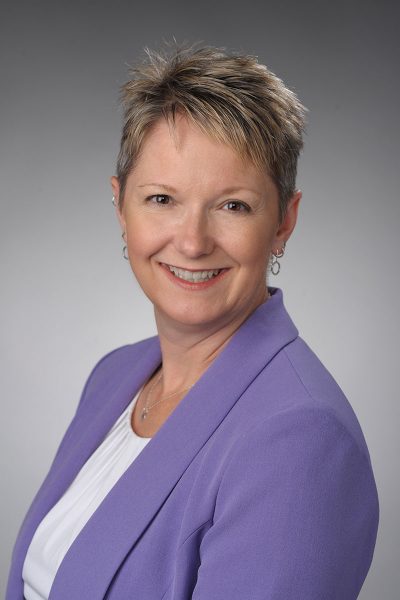
Though a majority of the pages analyzed appear tied to legitimate groups, a portion of the pages appear to be “inauthentic influencers” who are secretly coordinating and running identical videos or messages. Several of these groups include false or misleading information in their ads, the report found.
The research also captured evidence of a deepfake featuring manipulated audio of figures, including Trump and former Fox News host Tucker Carlson. And the findings detailed different political issues on which conservative and progressive-leaning pages are focusing their ad spends.
For conservative pages, immigration has been the top issue, surpassing the economy, while the economy was the top issue for progressive pages. Accounting for all pages regardless of leaning, ads related to the economy received the most ad dollars.
This is the second report from ElectionGraph, which seeks to identify misinformation trends in the U.S. presidential election and other top 2024 contests. The project is supported by a grant and use of analytics software from Neo4j, the world’s leading graph database and analytics company.
The Institute for Democracy, Journalism and Citizenship is a joint University initiative of the Newhouse School of Public Communications and Maxwell School of Citizenship and Public Affairs.
The IDJC ElectionGraph team’s efforts included pinpointing origins of messages and tracing misinformation by collecting and algorithmically classifying ads run on Facebook and Instagram, as well as social media posts on Facebook and X, formerly known as Twitter.
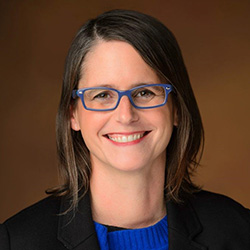
The network of authentic and inauthentic actors identified in the research represents just a fraction of all coordinated pages related to elections. Meta, which owns Facebook and Instagram, is the only social media group that grants approved organizations access to ad data. This data is not required to be disclosed and is not similarly trackable on TikTok, Google, YouTube or Snapchat, according to the report.
“What this research reveals is the surprising number of actors we know very little about who are spending money targeting voters with messaging on social media where there is little transparency,” says Jennifer Stromer-Galley, professor in the School of Information Studies and lead researcher for the project.
“It underscores that tech platforms need to do more to allow academics and journalists access to platform data so that political actors can be held to account with the American public,” Stromer-Galley says.
Johanna Dunaway, IDJC research director and a professor of political science in the Maxwell School, says that what stands out from the analysis is the reminder that the election information environment is more confusing than ever.
“Even as some things stay the same—like emphasis on the economy and more focus on advocacy and attacks than issues—opaque messaging from random one-off groups or complex hidden networks with questionable motives makes it increasingly difficult to identify credible messages and sources in the cacophony of campaign-related information,” Dunaway says.
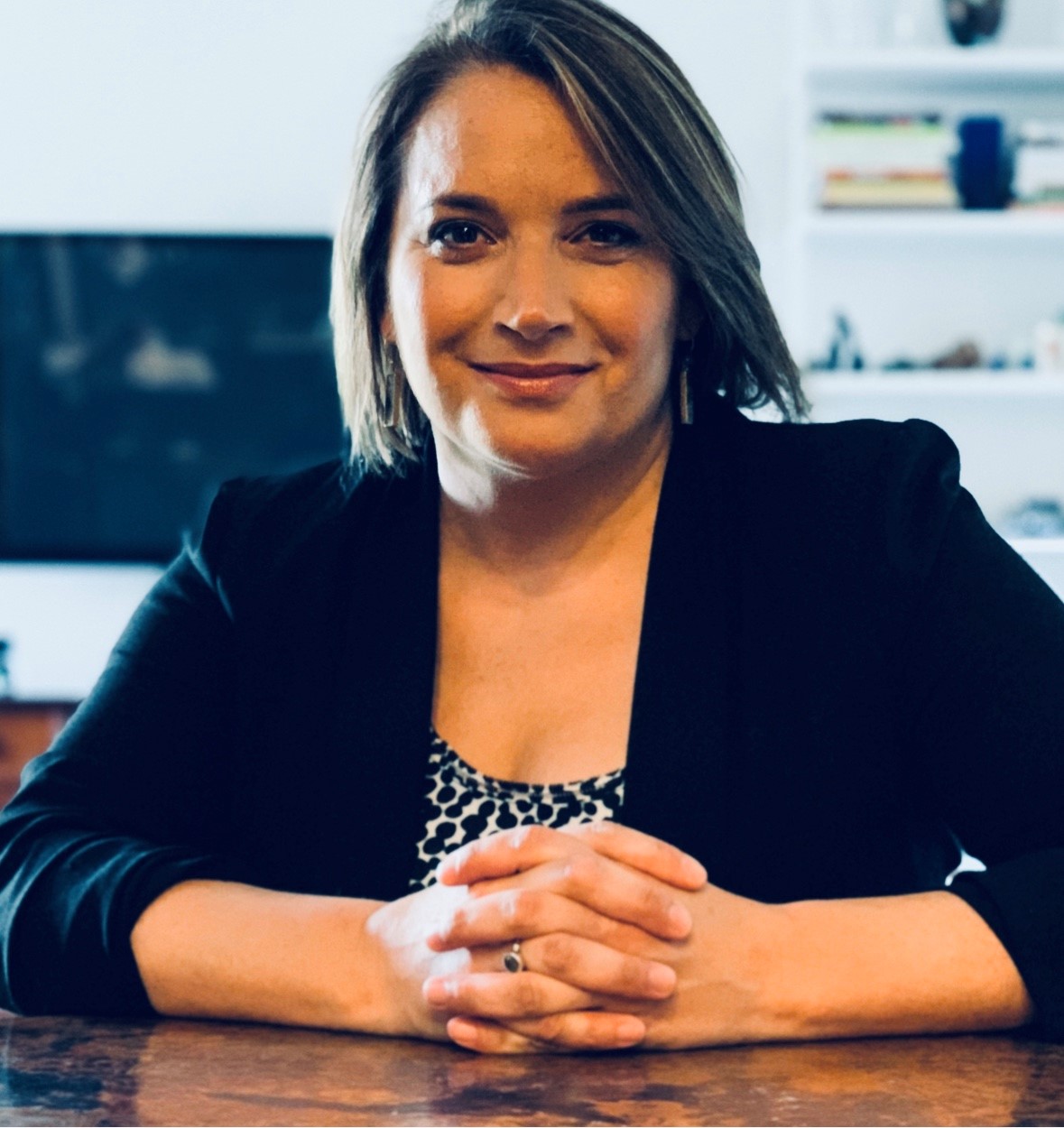
The prevalence of inauthentic groups, scams and deepfake voices just within the parameters of the search shows a massive amount of manipulation and misinformation targeting Americans through the political information consumed online, says Margaret Talev, Kramer Director of the IDJC, professor of practice in the Newhouse School and a journalist.
“This is a situation of ‘voter beware’ but also ‘consumer beware’ because sometimes what looks like a bid for your vote may actually be a bid for your identity or your credit card information,” Talev says.
Jim Webber, Neo4j’s chief scientist, says that covert operations by coordinated networks in digital civic spaces is a dangerous modern reality—while the company’s graph technology is enabling IDJC’s researchers “to uncover the hidden patterns and actions of those covert actors” and identify misinformation and misleading content.
Media Literacy’s Role in Social Justice and Empowerment
Read more about the latest episode of the “Newhouse Impact” podcast and listen to the show.
Many scholars have noted that education on media literacy is increasingly important as social and digital media become bigger parts of people’s lives.
On this episode of Newhouse Impact, Newhouse Communications Professor Dr. Srivi Ramasubramanian and Mass Communications Doctoral Student Shannon Burth expand the notion of media literacy beyond simply understanding the more about the media we consume. Their research also examines the ability to use media, to act and be empowered, and their importance as tools for social justice. They further include understanding the spread of AI and algorithms that increasingly control what is presented in various media.
IDJC Launches New Poll With Ipsos That Tracks Attitudes Toward Civic Engagement, Democracy
Syracuse University’s Institute for Democracy, Journalism and Citizenship (IDJC), in partnership with Ipsos, is launching a new poll that measures attitudes toward civic engagement, democracy and news and information.
Each wave of findings from the Syracuse University-Ipsos American Identity poll is based on interviews with roughly 1,000 U.S. adults conducted by Ipsos through its probability-based KnowledgePanel®.
Initial findings released Thursday found that Republicans were more invested in watching the first presidential debate between President Biden and former President Trump than Democrats or independents.
Based on a survey conducted May 17-19, 75% of Republicans said they were likely to watch the debate, compared with 61% of Democrats and 58% of independents.
“This project will help IDJC researchers expand our understanding of media consumption and an increasingly polarized electorate in a rapidly changing news climate,” said Margaret Talev, Kramer Director of the IDJC and professor of practice of magazine, news and digital journalism at the S.I. Newhouse School of Public Communications.
The IDJC is a joint University initiative of Newhouse and the Maxwell School of Citizenship and Public Affairs. Based in Washington, D.C., the institute engages in nonpartisan research, teaching and public dialogue aimed at strengthening trust in news media, governance and society.
“While many polls are focused on the horse race, this gives us the opportunity to understand how this election cycle is shaping Americans’ perspectives about patriotism, partisanship and the importance of democracy,” said Johanna Dunaway, IDJC research director and professor of political science at Maxwell.
Said Joshua Darr, IDJC senior researcher: “Our hope is that we can learn more about the relationships between identity, trust in media and attitudes toward democracy that shape the stakes of the election—not merely try to predict the election.” Darr also is an associate professor of communications at Newhouse.
The IDJC also offers foundational courses taught in the nation’s capital in civics, media literacy and ethics, and works with the Maxwell and Newhouse schools to facilitate internships, networking opportunities with alumni and other educational experiences for Syracuse University students.
The polling partnership with Ipsos will provide another avenue to teach students about survey research and demographic trends in society, Talev said.
“These are such important tools for aspiring journalists to have in their skillset,” she added. “It’s critical for reporters and writers to understand how voters feel and perceive developments on the trail to cover the campaign with proper context and authority.”
Talev also is a senior contributor at Axios and wrote about the poll Thursday.
Newhouse Recognizes Inaugural Emerging Technologies Faculty Fellowship Recipients
A new fellowship program recognizes Newhouse School faculty seeking to incorporate emerging technologies into the curriculum and empower students to use tools such as generative artificial intelligence in productive but responsible ways.
The Newhouse Emerging Technologies Faculty Fellowship program is an extension of the school’s longstanding commitment to develop student excellence and advance faculty expertise in technology-driven communications tools and practices. Similarly, a key pillar of the Newhouse academic strategic plan involves expanding proficiency in advanced and emerging media.
The fellowship program includes a $1,000 stipend to the awardee to accomplish goals. The recipient will present their work to Newhouse colleagues at a workshop during the 2024-25 academic year.
The inaugural group of four Newhouse Emerging Technologies Faculty Fellowship recipients is listed below, plus summaries of each proposal.
Rebecca Ortiz
Associate Professor, Advertising
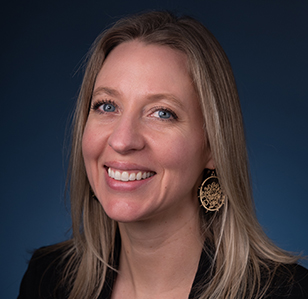
Embracing AI tools is essential for students to succeed in advertising and related fields after graduation. However, students must also understand AI limitations and biases. In fall 2024 advertising research courses, Ortiz will integrate an assignment where students will use an AI tool of their choice to conduct research on a given topic. They will fact-check and assess the biases in the AI-generated information and report findings. The main goals are for students to learn how to use AI effectively for advertising research purposes and develop critical analysis skills for evaluating AI-generated information.
Milton Santiago
Assistant Professor, Visual Communications
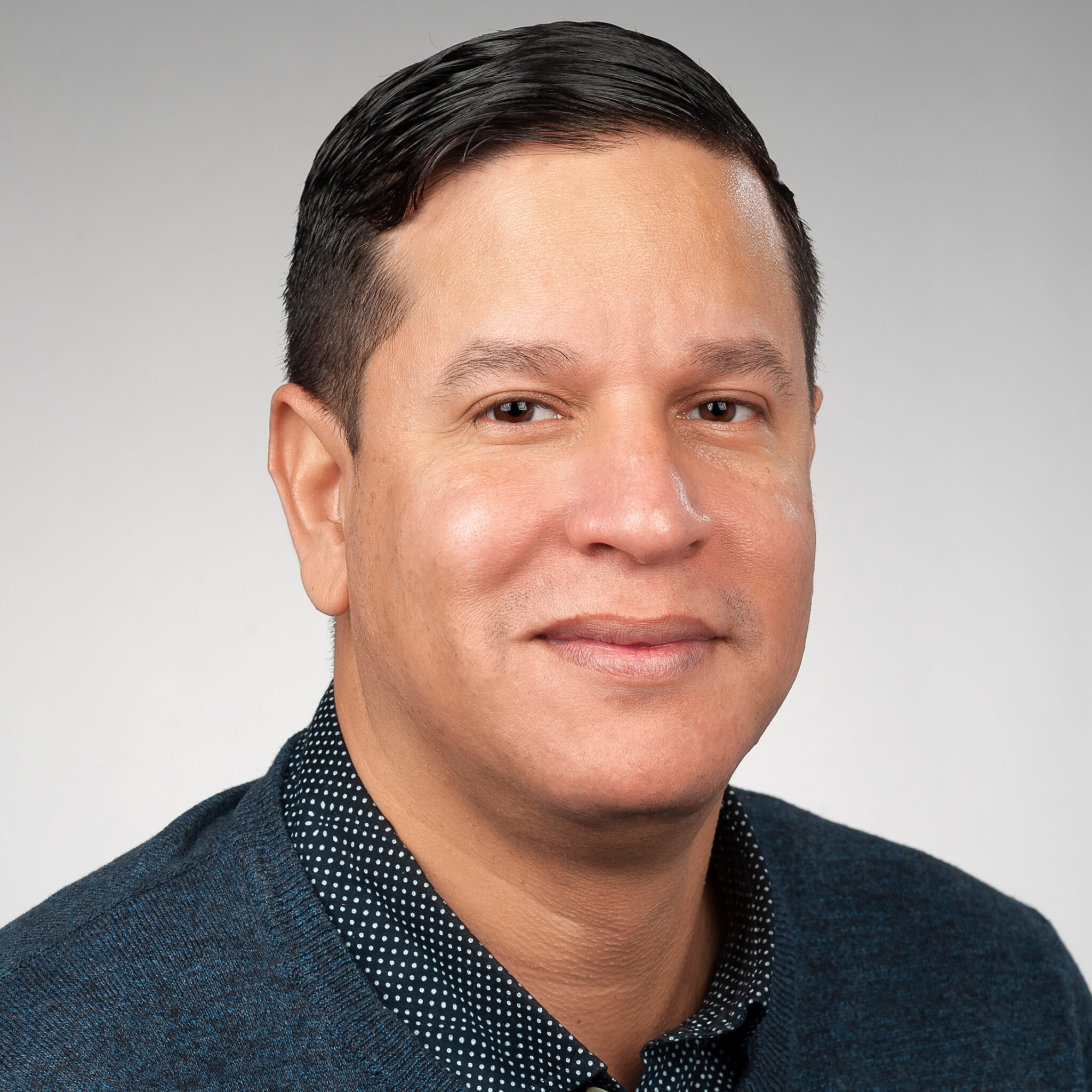
Designed in fall 2023 and taught for the first time in spring 2024, the AI in Filmmaking course was the first course offered at Newhouse that explored how generative AI tools could be leveraged to creatively produce scripts, images, sound and video for film concept trailers. Nine students participated in this five-week, one credit, practical hands-on course, generating three two-minute film trailers for projects that were brainstormed and created through “platform-hopping” several visual generative AI services.
This year, plans call for the release of at least three AI video generation platforms that will further expand and redefine what is possible in the visual communications front of content creation. The goal is to expand the AI in Filmmaking class to a three-credit course that would be offered in the spring and delve deeper into the toolsets, explore ethical questions in this space and guide students through the creation of longer projects like a short film or music video. Fellowship funding will allow Santiago to stay up to date on the latest services while building out course objectives and assignments/exercises.
Erika Schneider
Assistant Professor, Public Relations
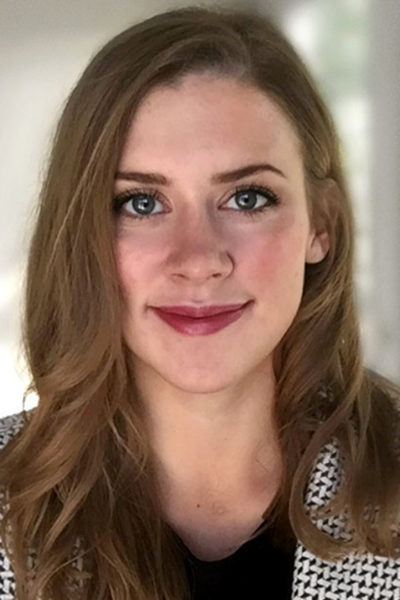
The NextGen AI PR series involves developing a weekly workshop or activity for a public relations writing course that focuses on the intersection of artificial intelligence and PR. The series involves introducing students to generative AI and teaching them skills and strategies to effectively use the tools available in PR writing, such as ChatGPT-4o and other platforms shared by colleagues during Newhouse’s AI/Emerging Media Day workshops hosted last spring.
Within my discipline, AI can be used to create efficiency, and speed is valued in this deadline-driven profession. The series will provide students guidance on how to use the tools ethically, such as by identifying the consequences of simply copying and pasting outputs, and exploring how these affordances can significantly enhance a PR professional’s capabilities. This, in turn, will help make them top-performing job candidates who can leverage cutting-edge technology to meet the fast-paced demands of the public relations industry.
Jason Webb
Assistant Professor, Visual Communications
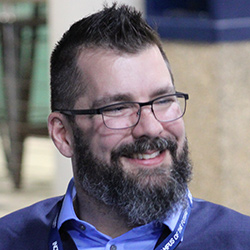
For visual communications, there are two areas of focus for fall 2024: generative AI and motion. Projects in each area will be designed and incorporated into the upper-level Motion Design class. In the realm of generative AI, students can develop and edit 2D and 3D assets for multiple projects throughout the semester. For motion AI, students will use motion tracking through AI software to animate characters they create in Adobe Animator, Blender and Unreal Engine.
How the Media is Impacting Teens’ Sexual Behaviors, Gender Identity and More
Read more about the latest episode of the “Newhouse Impact” podcast and listen to the show.
Teenagers’ use of media – especially social media – is the topic of much debate. Research shows media use is having an impact on teens and their sexuality, things such as gender identity, expression, and their sexual choices.
On this “Newhouse Impact” episode, Dr. Rebecca Ortiz, advertising associate professor at the Newhouse School, shares her investigations into teenagers’ media use, in advance of a new book coming out. The work can help inform messages shared through media about teenagers’ health and sexual health.
Newhouse Faculty, Doctoral Students to Participate in 2024 ICA Conference
Several Newhouse School faculty members and doctoral students will participate in the 74th annual International Communication Association conference on June 20-24, in Gold Coast, Australia. Their involvement includes paper presentations, panel appearances and more.
Note: For times and locations of presentations, please visit the conference website.
Friday, June 21
Uncanny Valley: The Paradoxical Effects of Anthropomorphism on Social Presence & Patronage Intention in the Context of e-Commerce Chatbot
University Branding & Emotional Shifts Affecting Message Responses: A Psychophysiological Experiment on University COVID-19 Vaccine & Mask Policies
The Role of Media Literacy & Identities in Youth Civic Engagement & Media Activism
Srivi Ramasubramanian and Shannon Burth
Perceived Relationships with a Female World Leader: A Public Diplomacy & Nation Branding Experiment of News Framing
Unintended Effects of Health & Risk Communication: Uncovering Message Strategies Against Message Fatigue
Probing the Asymmetry: Examining the Relationship Between News-Finds-Me Perceptions & Affective Polarization
Exploring the Comparative Effects of VR & AR on Learning Outcome: The Role of Plausibility Illusion, Cognitive Load, & Learner Personality
Heejae Lee
Emotional & Cognitive Effort in VR: Quantifying Empathy Evoking Effectiveness of Immersive Storytelling in DEIA-Themed Narratives
Kandice Green, David Peters and Makana Chock
The Right to Attribution in News: Truth & Transparency in AI & Journalism
Jason Davis, Gina Luttrell, Carrie Welch and Nalae Hong
Saturday, June 22
Effects of Message-based Affirmation on Responses to Environmental Risk Messages about Fast Fashion
When Crises Happen in News Deserts: Rural Social Media Commenters Adhering to Journalistic Norms
Jocelyn McKinnon-Crowley
How Do We Engage People with Low Motivation in Supporting Social Causes: Harnessing the Power of Influencers in Effective CSR Communication
Jeongwon Yang
Do ASMR Videos Have a Therapeutic Effect on Stressed Individuals: Examining the Neural Synchrony across Stressed Individuals Watching ASMR Videos
Delivering Change: The Diffusion of Doula Care in Black American Communities
Bryce Whitwam (recipient of Top Student Paper Award)
Inspiring Change or Protecting Status Quo: A Critical Look at Corporate Social Advocacy in Sports
Maria Grover
Exploring Audience Responses to Outdated Cultural Depiction Labels on Older Entertainment Media: A Mixed-Methodological Study
Nick Bowman, Yoon Lee, Srivi Ramasubramanian and Shannon Burth
The Roles of Media Platforms, Political Orientation, & Climate Change Belief in Pro-Environmental Behaviors: Cross-Cutting vs Like-Minded Exposure in the US & South Korea
Heejae Lee
Sunday, June 23
Negotiating Identities & Political (Dis)Engagement: An Exploration of Women’s Political Experiences during Brazil’s Presidential Election
Data Justice & Trauma-informed Approaches to Health Equity
Srivi Ramasubramanian
Geopolitical Frictions & Science Journalism: A View from the Hierarchy of Influences Model
Translation & Validation of the Video Game Demand Scale to Spanish
Heejae Lee and Nick Bowman
Exploring the Confidential Safe Zones: DV Shelters’ Communication Strategies towards Asian-American Women
Monday, June 24
Deep Description, Systematic Representative Design, & AI, AI, AI: Advancing Communication Science
Framing the Yanomami People during COVID-19: A Content Analysis of US Media Coverage of the Indigenous Health Emergency in Brazil
Raiana de Carvalho, Martina Santia and Srivi Ramasubramanian
Immersion or Identity Tourism: A Cautionary Note on our Emotionally Connected Future
Nick Bowman
Newhouse Impact: New Study Analyzes How Audiences Perceive News Beat Coverage; 2024 Newhouse Summit to Cover Immersive Storytelling
The latest Newhouse Impact research roundup also covers more about healthcare communications campaigns and loneliness.
A new study in the journal “Journalism,” investigates differences in news beat coverage between female and male journalists and their potential effects on audiences. The study’s authors are Newhouse School postdoctoral scholar Martina Santia; professor of communications and John Ben Snow Endowed Research Chair Lars Willnat; and doctoral candidate Stan Jastrzebski.
2024 Newhouse Impact Summit
This year’s Newhouse Impact summit will be held Aug. 1-2 at the Newhouse School. Titled “Advances and Opportunities in Immersive Storytelling Technologies,” the event will feature speakers from around the world presenting their innovative and provocative creative and scholarly work on the past, present and future of storytelling through extended reality technologies.
Newhouse Impact Podcast
A recent episode of the Newhouse Impact podcast covered research on loneliness and how health care professionals and those who create public information campaigns about wellness seek to learn more about stress impacts different groups.
Amy Barone, a student in the master’s of public relations program spoke with host Chris Bolt about her research on how loneliness impacts specific demographic groups and what can be done to address it. Barone, who also teaches in the writing studies, rhetoric and composition department in the College of Arts and Sciences, worked with Hua Jiang, associate dean of academic affairs at the Newhouse School and a professor of public relations.
Excerpts from the interview are below. Listen to the full show by visiting the WAER episode page.
What led you to research loneliness and the effects of the pandemic and politics upon it?
Barone
That’s a great question. I had spent the past four-five years in the classroom, creating writing courses focused on mental health. And students were writing about these topics. We were having conversations about and exploring scientific, peer-reviewed research on them. The students were just really eager to talk about what was transpiring in their personal lives and how that spilled over into their experiences in college.
I also have a little bit of a background in mental health. Through that, I have learned that people are not necessarily aware of their loneliness, but feel lonely, nonetheless. So, I wanted to use this research opportunity to further explore the implications of that and determine how it connects to the field of healthcare communications.
We know that people are feeling more isolated due to the pandemic and the current divisiveness of the political climate. But what exactly were you looking for in terms of a more scientific or research-supported view of that?
Barone
We started by doing a tremendous amount of secondary research. From those statistics, we learned that one in five adults live with mental illness, and that people are experiencing loneliness in epidemic proportions. In fact, it was the Surgeon General of the United States, Vivek Murthy, who [brought] to the public the idea that loneliness is currently an epidemic of sorts. This concept also came up in clinical studies in the [United Kingdom] to the degree that their government specifically appointed a minister to deal with it.
This is a serious mental health issue, and a physical one as well. But is it also something that might be ameliorated through effective healthcare communication?
Hua, you were sort of the guide for the students going into this research course. What did you think they could learn about loneliness that was scientifically-supported as opposed to anecdotal?
Jiang
In this course, we really encourage students to do both secondary and primary research, and to connect what was done in the past with what is happening now. We first got a lot of data from past studies, and then used that as the foundation of our primary research. This primary research consisted of surveys, social listening with focus groups and interviews. We wanted to get information directly from people. We also checked to see whether our findings coincided with those of the secondary research.
Our ultimate goal was to generate information for medical practitioners, pharmaceutical companies, and others from the health field. To provide them with insights that would be useful in developing communication campaigns to target specific stakeholder groups in the real world.
Also listen to: Can laughing at jokes and satire actually help bridge racial gaps and misunderstanding?
- Guests: Charisse L’Pree, associate professor of communications at the Newhouse School, and Luvell Anderson, associate professor of philosophy in the College of Arts and Sciences.
Recent accolades, highlights and notes
Michael O. Snyder talked about his best photograph, which is part of a long-term project, “The Queens of Queen City.”
Michael O. Snyder’s photographs were featured in a National Geographic press release and feature story about the ancient city of Petra and climate change.
The Code^Shift Symposium highlighted the complexities of the portrayal of immigrant communities in media.
Dennis Kinsey wrote about his keynote speech and research at the Annual Conference of the International Society for the Scientific Study of Subjectivity in Belfast last semester.
Newhouse School faculty members and doctoral students will participate in the 74th annual International Communication Association conference in Australia on June 20-24.
Harriet Brown has been chosen as a 2024-2025 Fulbright U.S. Scholar.
An IDJC report tracked the influence of social media ads on presidential primaries.
Roy Gutterman was a panelist at the SPJ Region 1 conference, the Albany Government Law Review symposium and the Education Writers Association panel “College Campus Free Speech Challenges Amid Israel-Hamas War.”
Roy Gutterman wrote about the how the spectacle of O.J. trial is one reason we won’t get to see Trump’s.
IDJC Report Tracks Influence of Social Media Ads on Presidential Primaries
More than 1,800 groups have collectively spent an estimated $15.3 million to pay for social media advertising that mentions President Joe Biden, former President Donald Trump or other presidential candidates, according to a new report from Syracuse University’s Institute for Democracy, Journalism and Citizenship (IDJC).
Research from the IDJC ElectionGraph project found that the millions paid for more than 24,000 ad buys and about 5,500 unique ads on Facebook and Instagram between Sept. 1, 2023, and Feb. 29, 2024. This amounts to an estimated 869 million impressions in the months leading up to, and during, the presidential primaries. The majority of ads involved Biden or Trump, the report found.
The Biden and Trump campaigns spent another roughly $10 million on paid social media content, drawing 303 million impressions, though the incumbent outspent Trump about 7-to-1 on these platforms.
This is the first report produced via research supported by a $250,000 grant from Neo4j, the world’s leading graph database and analytics company. The grant allows ElectionGraph researchers to use Neo4j’s graph database and analytics software to identify misinformation trends in the U.S. presidential election and other top 2024 contests.
The research team’s efforts focus on dissecting misinformation themes—pinpointing origins of messages and tracing misinformation by collecting and algorithmically classifying ads run on Facebook and Instagram, as well as social media posts on Facebook and X, formerly known as Twitter. The project will also gather input from journalists and the public about the 2024 presidential election, and races for U.S. Senate and key congressional districts.
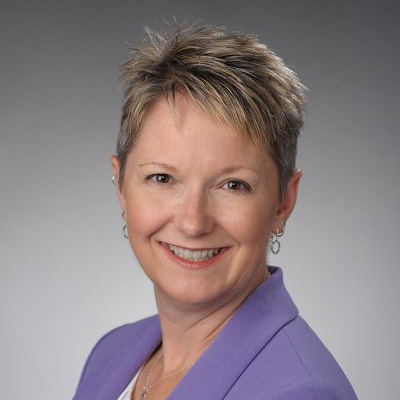
The first set of findings released today demonstrate the importance of requiring social media platforms to disclose details about election advertising and messaging, says Jennifer Stromer-Galley, senior associate dean and professor at the School of Information Studies. An expert in political campaigns and misinformation, Stromer-Galley leads the IDJC ElectionGraph research team.
“Revealing details about ads and messaging on social media platforms is vital to provide the public with transparency and context,” Stromer-Galley says. “Failure to do so can make voters more vulnerable to manipulation without any sort of accountability.”
Organizations that ran ads ranged from well-known political action committees, political party groups or other candidates, to obscure players with harder-to-trace ties and agendas, the report found. The analysis identifies the top 30 spenders that each mention Biden and Trump, and examines patterns in how groups apply the honorific of “President” when referring to either candidate.
The report captures a fraction of overall U.S. election-related content across all social media platforms. While Meta, which owns Facebook and Instagram, currently allows approved organizations to access ad data, it is not required to be made available—and not similarly trackable—on TikTok, Google, YouTube or Snapchat.

“These findings give us a glimpse at the firehose of information and misinformation coming at voters from groups with a jumble of motives, ties and trustworthiness ahead of the 2024 elections,” says Margaret Talev, Kramer Director of the IDJC, professor of practice at the Newhouse School of Public Communications and a journalist.
The challenge faced by digital researchers and computational journalists in unearthing the consequences of AI-driven misinformation on democracy is enormous, says Jim Webber, chief scientist at Neo4j.
“Graph technology is an essential enabler to those seeking to uncover hidden patterns and networks of those looking to manipulate democratic populations,” Webber says.
“We at Neo4j are proud to support Syracuse University’s mission to help journalists and citizens separate fact from fake news so that the voting public can make informed decisions as they go to the polls.”
This article originally appeared in Syracuse University News.
Comedy, Satire and How Humor Can Address Topics Related to Race, Diversity and Other Serious Issues
Read more about the latest episode of the “Newhouse Impact” podcast and listen to the show.
We often laugh at comedy and satire. But can these forms of entertainment be effective in spreading understanding about serious issues such as bridging racial gaps ?
On this episode of the “Newhouse Impact” podcast on WAER 88.3, Syracuse University faculty members Charisse L’Pree and Luvell Anderson discuss their work breaking down the messages that can be embedded in satire and humor. L’Pree is an associate professor of communications at the Newhouse School, while Anderson is an associate professor of philosophy in the College of Arts and Sciences. Their interdisciplinary PoSH Lab (Psychology, Philosophy and Pedagogy of Satire and Humor) can help students examine serious topics and inform their work.
L’Pree and Anderson also said on “Newhouse Impact” that humor has long been a place where race and differences have been discussed, and in some cases it’s a way to call out stereotypes and break down barriers.